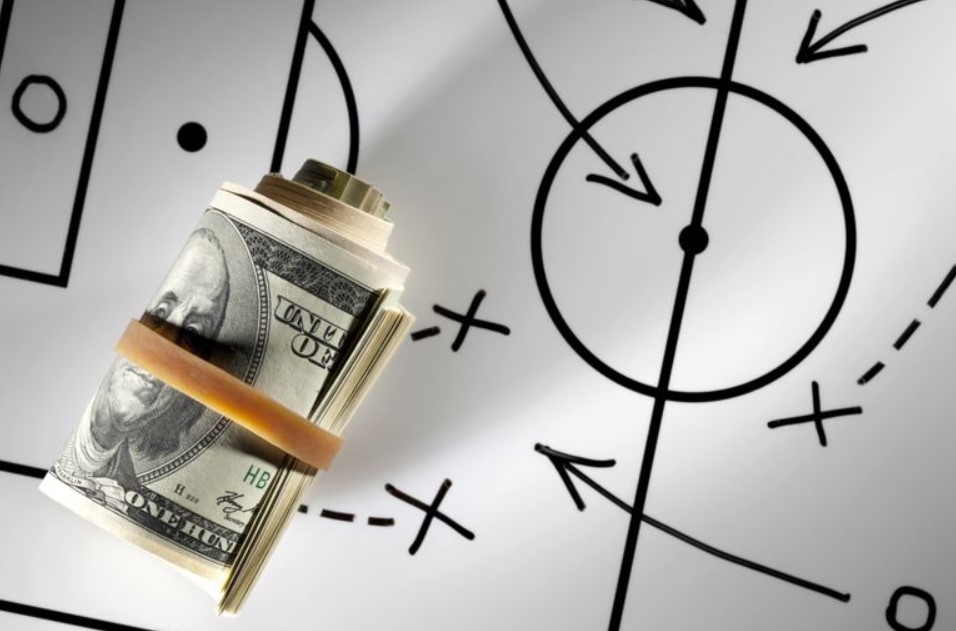We live during a time where data is above all else. The response to practically any question we can imagine is readily available: a mouse snap or telephone tap away from our musings. However, regardless of this, the human psyche hasn’t exactly stayed aware of the speed of the mechanical turn of events: it actually commits errors occasionally and makes us settle on some unacceptable choices.
Quite a bit of this is basically misjudging the data before us, or listening to terrible guidance, but at the same time, we’re defenseless to specific mental examples that our cerebrums have created to assist with taking care of masses of data. Specialists allude to them as intellectual predispositions, and they upset our capacity to settle on reasonable decisions. Head over to sbobet in order to know more.
Intellectual predispositions are more normal than you may might suspect. Analysts have grouped many of them. A typical model in the wagering scene is Gambler’s error, the conviction that future occasions are affected by past activities, despite the fact that the inverse is valid.
We may even believe the number 7 to be a sort of intellectual predisposition: many individuals, including speculators, trust it to be their fortunate number, notwithstanding no proof of this, and specialists put it down to a basic mental hiccup where we pick this is on the grounds that we subliminally follow a specific mathematical example causing it to appear to be unique.
The primary rule of betting is to consistently have command over your activities and keep yourself from confronting issues identified with overabundance misfortunes. The extension of online stages impacted the market to turn out to be a lot more straightforward for players.
Consequently, you can now basically enter a site and play a wide range of games or wager on various occasions. You should really focus on the methodology and how you control your assets. Much of the time, the issues will come because of wild moves brought about by the absence of a legitimate arrangement. Remember that some intellectual inclinations can likewise influence how you are wagering. Here are a few instances of what intellectual predispositions mean for sports card sharks.
The Gambler’s Fallacy

The peculiarity is the conviction that past outcomes influence the likelihood of future outcomes, particularly when they identify with ongoing occasions. All things considered, assuming something happens more frequently than likelihood would propose, it appears to be logical that things will level out on the following occasions.
Now and then the contrary conviction occurs. Individuals feel that something that is going on more frequently will continue to happen all the more regularly for some time. Be that as it may, in all actuality, assuming something is irregular and comprises autonomous occasions, the likelihood of future occasions is unaffected by past occasions.
Having a False Sense That You Will Win
This is definitely not an uncommon case, and it is generally expected identified with individuals who love specific clubs. That regularly prompts an inclination that their club should dominate the accompanying match regardless of the extra factors like the significance of that game, expected wounds of vital participants, nature of the rival group, and the sky is the limit from there.
Such conviction and assurance, alongside the feeling that it is basically impossible that some other outcome is conceivable than a triumph of your cherished club, can prompt issues assuming you choose to put a truckload of cash on that too. For instance, your group has lost four of their last home games, and they are currently playing against the fundamental adversary in the association.
You, as a fan, will expect that they will plan for that game and give their best to win it. The present circumstance isn’t constantly identified with most loved clubs. Many individuals will utilize sound judgment and spotlight on some past outcomes believing that it should be the main variable that will decide the accompanying outcomes also. Remember that astonishments are conceivable in each game.
Leaning toward the Most Likely Outcome

This one seems like it wouldn’t be a blunder, yet it is. Players like to wager on the result that is bound to happen. Right away, that checks out. All things considered, is there any valid reason why you wouldn’t have any desire to wager on the result that is bound to bring about success?
In any case, simply wagering on the result that is bound to win doesn’t consider the amount you’ll win. The payout may be extremely huge that your normal worth is greatly improved. This is one more illustration of how individuals who don’t comprehend math commit errors dependent on intellectual predispositions.
Believing That You Must Win
Indications of egocentrism in betting are not uncommon. That is the situation where individuals feel that there is an all inclusive equilibrium identified with their betting achievement. The basic clarification is that the player will begin imagining that the possibilities are greater for winning a ticket assuming they lost a ton in past ones.
This is like the situation where individuals are feeling that they can’t lose, and how it is their big chance to shine sort of day or seven days. It regularly prompts wild moves where players are putting away considerably more cash. This feeling of bogus certainty can prompt many issues, both mental and monetary.
Recency Bias

Particularly conspicuous in sports wagering, speculators will quite often exaggerate ongoing outcomes while assessing the odds of a specific result happening, (for example, a group covering the focuses spread). Actually like a roulette turn, the consequences of sporting events are for the most part free from each other.
While past games might provide us with a thought of a group’s ability and potential for winning contrasted with another’s, they have no evidence bearing on the probability of a particular future outcome.
Result Bias
Regardless of whether in betting, sports, or even table games, a large portion of us have faced a major challenge that wound up paying off, causing us to feel like the most intelligent individual in the room. Be that as it may, when these dangers crash and burn, we beat ourselves up because we believe we ought to have known better.
This is result predisposition basically, where regardless of whether our dynamic interaction is measurably solid (like with blackjack essential technique), we exaggerate the consequence of something instead of the thinking that went into the choice.
Our Final Verdict
So how would you defeat these inclinations? The straightforward response is that you can’t genuinely at any point beat them. As people, we’re continually going to be liable to inclinations. The most effective way to battle them is to attempt to eliminate subjectivity from the dynamic interaction and see how these inclinations can shade your choices.
Try not to overlook information assuming it doesn’t line up with your current assessment. Try not to overcompensate to little example sizes, check out investigation and details prior to settling on your choice, not the other way around, and make models or systems that are without subjectivity.




